China's sacrifices should always be remembered
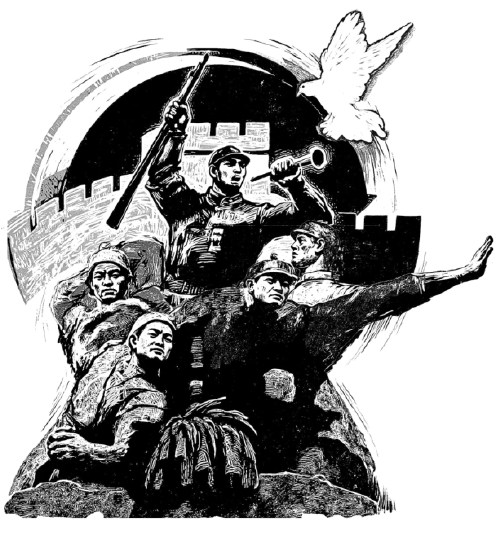
MA XUEJING/CHINA DAILY。
Editor's note: With global tensions rising and regional conflicts showing no signs of ending, it has become more urgent than ever to understand the root causes of war. Wang Jianlang, president of the Chinese Society for the History of the War of Resistance Against Japanese Aggression, reflects on some overlooked aspects of World War II — its real starting point, China's under-recognized contribution, and why the principle of "indivisible peace" remains vital today. Wang also warns against populism and historical amnesia in an in-depth conversation with China Daily's Liu Jianna for Dialogues with Thinkers, China Daily's high-end interview program. Following are excerpts from the interview:。
Q1: How should the world reflect on World War II amid the ongoing regional conflicts in order to prevent new wars?
A: We are witnessing a turbulent era of global change. While we may not yet be on the brink of a third world war, the current global environment is arguably the most chaotic in the 80 years since the end of World War II. International rules and norms are being repeatedly violated, increasing the risks of a global war.。
In such times, it is crucial to learn from the experiences of World War II. The prelude to that war showed how incremental aggression, if unchecked, could spiral into a global catastrophe. The world failed to respond decisively to early acts of aggression, which ultimately emboldened the Axis powers. Japan's occupation of Northeast China, Germany's expansion into Austria and Czechoslovakia were all warning signs.。
Today, our ability to prevent another global war hinges on our willingness to uphold international norms, support multilateral institutions, and collectively and decisively respond to emerging threats. History warns us that inaction and appeasement are often enablers of war.。
Q2: Why should we reconsider the starting point of World War II?
A: Traditionally, World War II is considered to have begun in 1939 with Germany's invasion of Poland. This Euro-centric perspective has dominated mainstream history. However, decades of research suggest the war had two major origins: Europe and East Asia.。
Japan's invasion of Northeast China in 1931 — commonly known as the "Sept 18 Incident" — was a prelude to World War II. But the world at that time failed to recognize its global implications, which led to a long and brutal campaign that eventually evolved into a full-scale war in 1937.。
If we consider the Axis powers collectively as the initiators of World War II, then Japan's invasion of Northeast China in 1931 marked the opening act of the conflict, while its full-scale invasion of China in 1937 should be recognized as the true starting point of the war. Recognizing this broader timeline will not diminish European experiences but rather complete the full global picture of the war, because World War II was not a single-front conflict but a worldwide fight against fascism, shaped by multiple triggers and theaters of violence.。
Q3: What key lessons from World War II should we always remember?
A: One of the most important lessons is the danger of appeasement and inaction in the face of early aggression. Before 1937, as Japan escalated its aggression into a full-scale invasion of China, the international community largely limited its response to expressions of sympathy, offering little in the way of concrete support. The lack of action to curb Japan's ambitions failed to deter Japan's expansion, which continued to intensify in the following years.。
Similarly, in Europe, the 1938 Munich Agreement — where Great Britain and France conceded Czechoslovak territory to Nazi Germany — demonstrated how granting repeated concessions could backfire. Germany and Japan both interpreted these diplomatic compromises as a green light to intensify their aggressive campaigns.。
Another crucial lesson is the concept of "peace is indivisible". In the 1930s, major powers such as the United States viewed regional wars in Asia as irrelevant to their own national security. It wasn't until the industrial Western powers were attacked and a global alliance was formed that the importance of world peace became undeniable.。
This idea is part of the foundation of international relations. The threat to peace in one region must be seen as a threat to global peace and stability, which warrants collective and timely action. Only by adhering to this principle can we prevent regional conflicts from turning into global wars.。
Q4: How did China contribute strategically to the global anti-fascist war?
A: China's role in the global fight against fascism has often been undervalued, partly because it was not an industrial power like the US, Great Britain or the Soviet Union. Nonetheless, China's strategic contributions were immense.。
Despite the vast disparity in economic and military capabilities — China's GDP was less than a quarter and steel production less than 1 percent of Japan — China resisted Japanese aggression for 14 years, which includes eight years of full-scale war. It was a prolonged and costly resistance.。
China tied down more than 1 million Japanese troops on the Asian mainland, significantly easing pressure on Allied forces in the Pacific. Nearly 700,000 Japanese troops were engaged in Northeast China, preventing Japan from launching attacks on the Soviet Union's eastern front. This protected the Soviet Union in the east while it engaged in a brutal conflict with Nazi Germany in the west.。
Moreover, Chinese forces fought in foreign theaters such as Myanmar, contributing to the broader Allied victory. These sacrifices and strategic contributions earned China recognition as one of the "Big Four" Allied powers and a permanent seat in the UN Security Council. China's endurance and resistance were pivotal to the global outcome of the war.。
Q5: Why should the 1937 Lugou Bridge Incident be seen as a starting point of World War II?
A: While 1931 marked the beginning of a regional war of resistance against Japanese aggression, the Lugou Bridge Incident on July 7, 1937, signaled the onset of full-scale war between China and Japan.。
If we define World War II as a global war between expansionist powers and international resistance, then the 1937 invasion stands as a starting point of the war. Recognizing this helps correct the imbalance in Western narratives on the war, which often sideline the main Eastern battlefield's importance.。
By incorporating this perspective, we acknowledge that the war was not West-centric but part of a broader global breakdown of peace. It allows for a more nuanced understanding of the interconnectedness of global conflicts, and ensures that the experiences of Asian nations are not overlooked in the history of World War II.。
Q6: How should we see the roles of the Communist Party of China and Kuomintang during the Chinese People's War of Resistance Against Japanese Aggression?
A: Both the CPC and the KMT played vital roles in resisting Japanese aggression, operating on two major fronts: the enemy's rear and the main battlefield. Their contributions were complementary, even if political tensions between them persisted.。
When honoring wartime sacrifices, we should focus on the fact that all Chinese forces, regardless of their political affiliation, fought to defend the nation. Both the CPC and KMT soldiers are part of our shared memory of resistance and deserve equal recognition for their bravery. It's also important to resist overly politicized historical narratives that pit one side against the other. The reality is that their coordinated efforts helped sustain the national resistance despite extreme hardship. The legacy of these joint efforts should be a symbol of unity rather than division.。
Q7: Why must we remain vigilant against populist rhetoric and political manipulation?
A: World War II was not only a military conflict but also a political and psychological conflict. Both Nazi Germany and imperial Japan used mass propaganda to stir ultra-nationalism and justify their expansionist policies.。
Even today, in the age of information, populist leaders can distort facts and manipulate public sentiment. When emotions override reason, democratic systems can become vulnerable, and history shows how dangerous that can be.。
Preventing the resurgence of authoritarianism requires constant vigilance against those who use ultra-nationalism, fear and populism to polarize societies. The example of Hitler reminds us of how unchecked emotional mobilization can disable societal checks and balances, and lead to disaster.。
In this era dominated by social media echo chambers and algorithm-driven content, the danger is even greater. Populism can thrive in disinformation-prone environments, making it all the more essential to promote critical thinking and independent journalism.。
Q8: How did World War II lay the groundwork for today's global governance system?
A: After the end of World War II, the international community sought to prevent a recurrence of another global war by establishing a robust system of collective security, most notably through the United Nations. The concept of peace is indivisible became institutionalized; as a result any regional conflict can now be discussed at the UN Security Council.。
This legacy is not just symbolic. It reflects the hard-earned lesson that diplomacy and dialogue should take precedence over unilateral military actions. Today, maintaining the postwar world order is essential to maintain global stability.。
The idea that all conflicts — no matter how localized — can escalate and affect global peace shaped institutions like the UN and principles like the Responsibility to Protect. These frameworks are under strain today but remain vital.。
Recommitting to the spirit of postwar cooperation requires reforming and strengthening global institutions to reflect 21st-century realities, without losing sight of the lessons that led to their formation.。
Q9: Why has China's World War II narrative often been underrepresented globally?
A: Several factors have contributed to this narrative. First, during World War II, China was not an industrial power and, unlike its Western allies, lacked global influence. As a result, its contributions, though strategic and prolonged, did not receive equal attention in postwar narratives.。
Second, the dominant Euro-American focus in World War II historiography has often overlooked the significance of the main Eastern battlefield. But recent decades have seen a growing recognition of China's central role in resisting fascism.。
And third, ideological tensions during the Cold War further distorted historical representation. China's role was either politicized or sidelined depending on the prevailing geopolitical narrative. Only in recent decades has there been a scholarly shift toward a more balanced global account of World War II. Reframing historical narratives to include multiple perspectives is not about rewriting history; it's about completing it.。
Q10: Why does redefining the World War II narrative matter in today's geopolitical landscape?
A: Historical narratives shape contemporary perceptions and policies. Recognizing China's role in World War II reinforces its legitimacy as a founding member of the international order. It also highlights the importance of non-Western contributions to global peace.。
At a time when multilateralism is under strain and nationalism is on the rise, a more inclusive World War II narrative reminds us of the shared sacrifices that led to the formation of the current global system, and why it must be protected.。
Moreover, as new conflicts occur and historical accounts are often invoked to achieve political ends, a clearer understanding of how wars began — and how they were won — can guide better decision-making. Accurate, inclusive history is a cornerstone of peace and cooperation.。
To build a bright global future, we require a collective memory which should recognize that World War II was not only fought and won in Europe, but across continents, with shared sacrifices and the common hope for peace.。
Wang Jianlang, president of the Chinese Society for the History of the War of Resistance Against Japanese Aggression. The views don't necessarily represent those of China Daily.。
If you have a specific expertise, or would like to share your thought about our stories, then send us your writings at opinionchinadaily.com.cn, and commentchinadaily.com.cn.。
(责任编辑:焦点)
-
“定向应聘的海归留学生”怎么一步步沦为境外特务的 “提线木偶”?
 他本是天分聪明的留学生,却堕入境外特务情报机关骗局。当虚情关心变为嗜血獠牙,吞噬的将是自己本来光亮的终身。郝某,受境外特务情报机关指挥,长时间潜伏在我中心要害部位,因特务罪被判处无期徒刑,剥夺政治权利
...[详细]
他本是天分聪明的留学生,却堕入境外特务情报机关骗局。当虚情关心变为嗜血獠牙,吞噬的将是自己本来光亮的终身。郝某,受境外特务情报机关指挥,长时间潜伏在我中心要害部位,因特务罪被判处无期徒刑,剥夺政治权利
...[详细]
-
 在这里,遇见整个江南的温顺。苏州园林,集山川城郭于方寸之间,一步一景皆成画,一石一水皆有情。
...[详细]
在这里,遇见整个江南的温顺。苏州园林,集山川城郭于方寸之间,一步一景皆成画,一石一水皆有情。
...[详细]
-
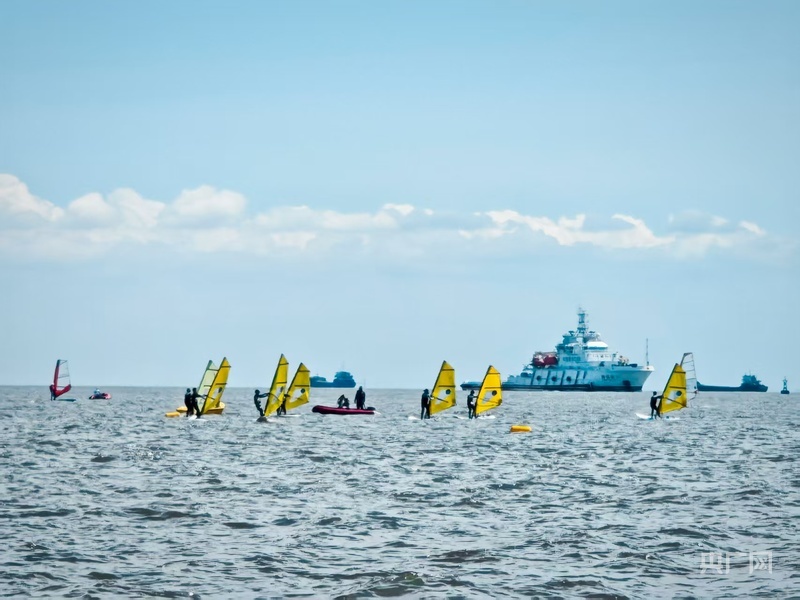 央广网海口7月13日音讯记者蔡文娟 陶淦 实习记者顾博文)帆船帆板披荆斩棘,桨板皮划艇戏水弄潮,潜水探秘海底奇迹……海南正凭仗得天独厚的天然禀赋,将水上运动打造成今夏最燃的消费引擎。日前,坐落海口西秀
...[详细]
央广网海口7月13日音讯记者蔡文娟 陶淦 实习记者顾博文)帆船帆板披荆斩棘,桨板皮划艇戏水弄潮,潜水探秘海底奇迹……海南正凭仗得天独厚的天然禀赋,将水上运动打造成今夏最燃的消费引擎。日前,坐落海口西秀
...[详细]
-
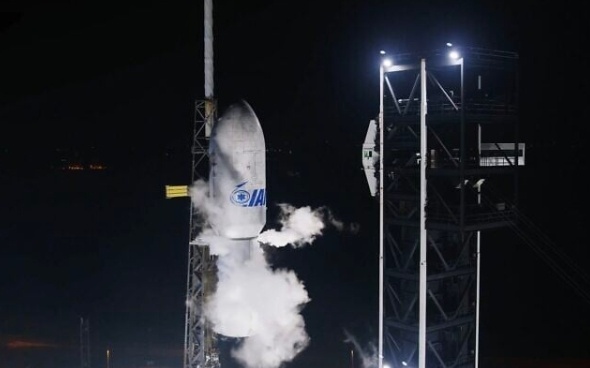 以色列外交部和以色列航空航天工业公司7月13日说,美国太空探究技能公司当天在佛罗里达州用“猎鹰9”火箭将一颗以色列国产通讯卫星送入太空。以色列外交部在交际媒体上说,这颗卫星代号为“自在1”,造价约2亿
...[详细]
以色列外交部和以色列航空航天工业公司7月13日说,美国太空探究技能公司当天在佛罗里达州用“猎鹰9”火箭将一颗以色列国产通讯卫星送入太空。以色列外交部在交际媒体上说,这颗卫星代号为“自在1”,造价约2亿
...[详细]
-
 第五届我国国际消费品博览会将于4月13日至18日在海南举行。作为开年以来我国举行的首场严重国际性展会,也是我国仅有以消费为主题的国家级展会。本届消博会有哪些不同之处?有哪些亮点值得重视?一图速览。
...[详细]
第五届我国国际消费品博览会将于4月13日至18日在海南举行。作为开年以来我国举行的首场严重国际性展会,也是我国仅有以消费为主题的国家级展会。本届消博会有哪些不同之处?有哪些亮点值得重视?一图速览。
...[详细]
-
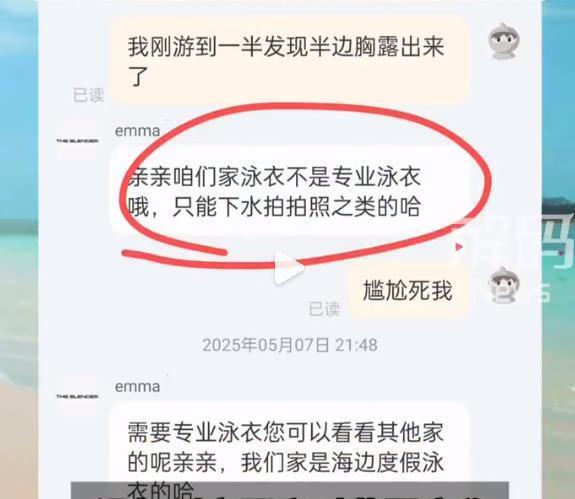 极目新闻谈论员 吴双建。7月12日,广东发布),有顾客发帖爆料,穿戴新购买的连体泳衣游水时不小心走光,发现走光的那一刻感觉无比羞耻。顾客找到门店客服投诉质疑泳衣规划不合理,前胸部分一边高一边低,不可能
...[详细]
极目新闻谈论员 吴双建。7月12日,广东发布),有顾客发帖爆料,穿戴新购买的连体泳衣游水时不小心走光,发现走光的那一刻感觉无比羞耻。顾客找到门店客服投诉质疑泳衣规划不合理,前胸部分一边高一边低,不可能
...[详细]
-
 中心阅览。轿车产销初次双超1500万辆,多项目标同比均完结两位数增加……我国轿车工业协会日前发布职业半年报,数据亮眼。此外,轿车职业一系列整治“内卷式”竞赛办法先后落地,无序价格战、账期拖长、虚伪宣扬
...[详细]
中心阅览。轿车产销初次双超1500万辆,多项目标同比均完结两位数增加……我国轿车工业协会日前发布职业半年报,数据亮眼。此外,轿车职业一系列整治“内卷式”竞赛办法先后落地,无序价格战、账期拖长、虚伪宣扬
...[详细]
-
 在5岁到10岁期间,“玻璃娃娃”田艳青骨折过七次,小学阶段大部分时刻都是在家中度过,但她的国际由于一位支教教师而翻开。他们之间,连续着一段长达13年的师生情。田艳青:他是我的引路人。就像有一句话,教育
...[详细]
在5岁到10岁期间,“玻璃娃娃”田艳青骨折过七次,小学阶段大部分时刻都是在家中度过,但她的国际由于一位支教教师而翻开。他们之间,连续着一段长达13年的师生情。田艳青:他是我的引路人。就像有一句话,教育
...[详细]
-
全国首个“四算交融”算力网络建成 可调度算力资源占全国六分之一
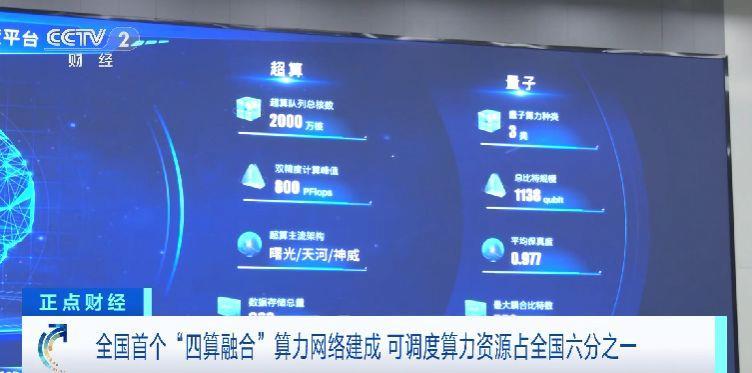 跟着人工智能技术和数字经济的快速展开,当时全球对算力的需求都出现高速增加态势。4月10日,我国首个“四算交融”的算力网络正式宣告建成。这一算力网络有何特色?总台央视记者 宁坤:这一最新建成的算力网络调
...[详细]
跟着人工智能技术和数字经济的快速展开,当时全球对算力的需求都出现高速增加态势。4月10日,我国首个“四算交融”的算力网络正式宣告建成。这一算力网络有何特色?总台央视记者 宁坤:这一最新建成的算力网络调
...[详细]
-
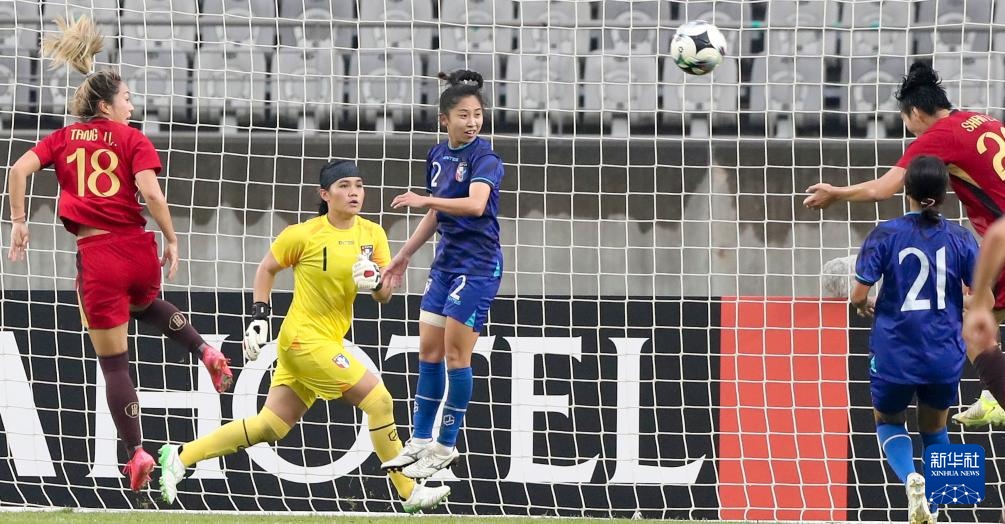 7月13日,我国队球员邵子钦 右一)头球破门。当日,在韩国华城举办的2025年东亚足联E-1足球锦标赛东亚杯)女足竞赛中,我国队4比2打败我国台北队。新华社记者 姚琪琳 摄。7月13日,我国队球员邵子
...[详细]
7月13日,我国队球员邵子钦 右一)头球破门。当日,在韩国华城举办的2025年东亚足联E-1足球锦标赛东亚杯)女足竞赛中,我国队4比2打败我国台北队。新华社记者 姚琪琳 摄。7月13日,我国队球员邵子
...[详细]

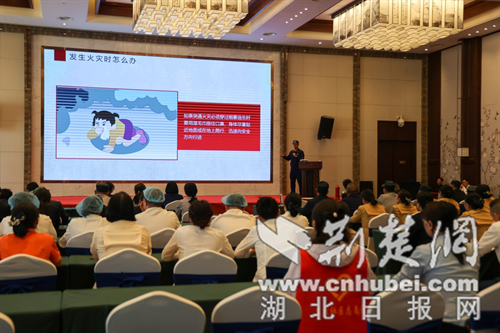 荆门“消地联治”织密酒店职业消防安全“防护网”
荆门“消地联治”织密酒店职业消防安全“防护网” 3:2反转美国队!世联赛美国站中国女排四连胜收官
3:2反转美国队!世联赛美国站中国女排四连胜收官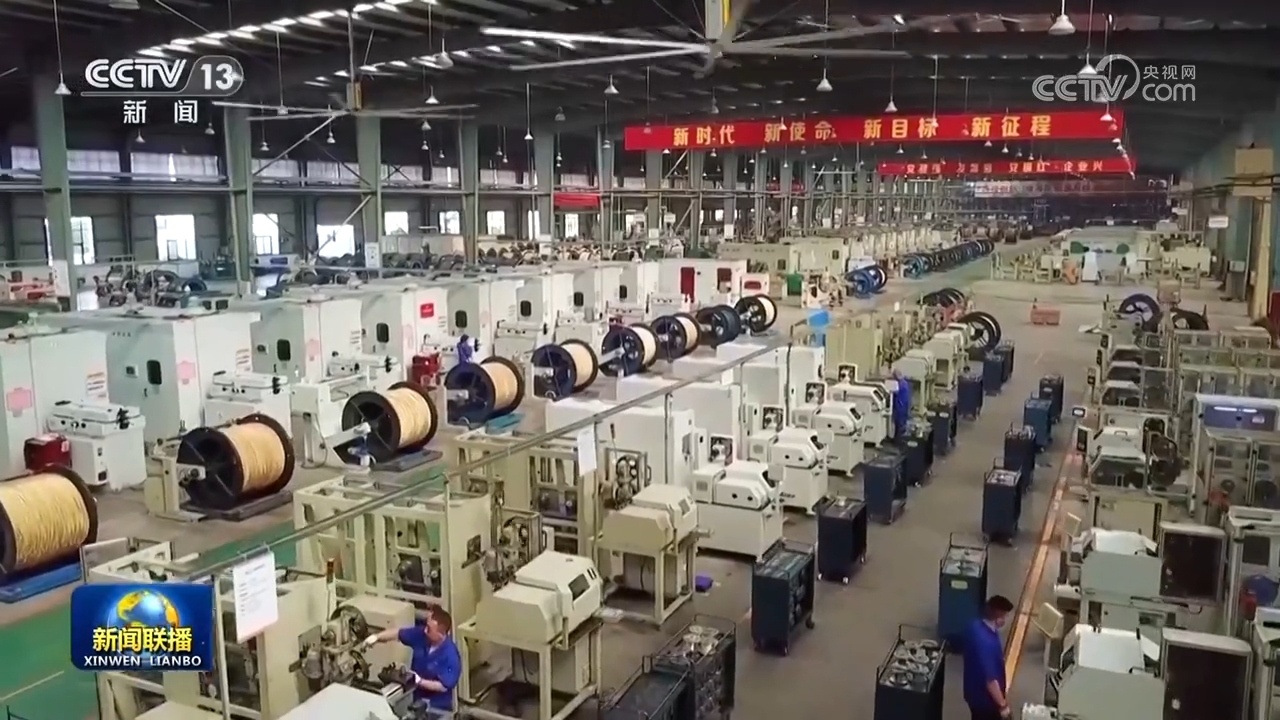 多范畴齐头并进 一季度我国经济高质量开展成效显着
多范畴齐头并进 一季度我国经济高质量开展成效显着
